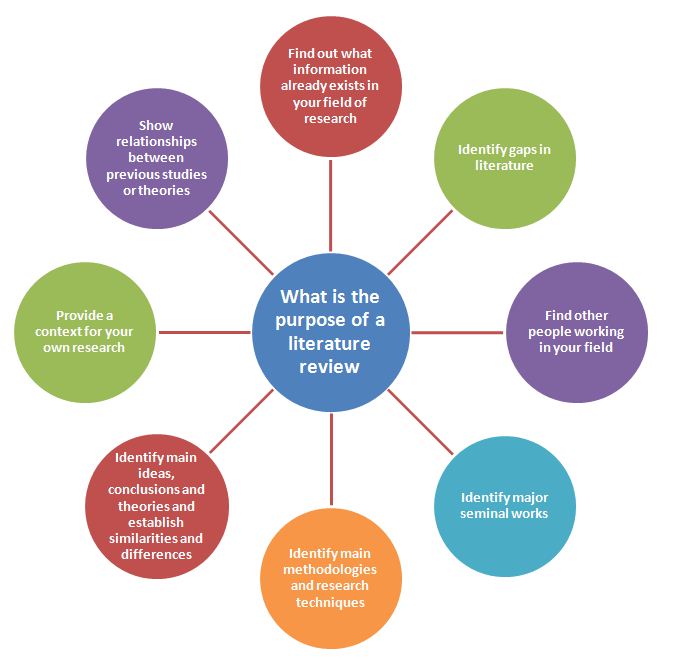

Keep some steps in mind when beginning your work on a literature review:

A literature review is an overview of literature published on a topic, issue, or theory. It can cover a wide variety of materials including but not limited to scholarly articles, books, dissertations, reports, conference proceedings, etc. The purpose of a literature review is to describe, summarize, and evaluate the works being examined for the review.
How you construct a literature review and the specific outline of it can vary depending on what your professor has laid out for you in your assignment. The review can be just a summary of sources on the subject you are writing about or it could be an examination of the material on your chosen topic. It can also be an analysis of previous research in an in-depth manner or just trace the development of a field of study over time. A good literature review should ultimately be a guide for its audience, giving them a solid idea about what extent and limits of the research has been done so far.

(Link)
When writing a literature review, consider first what it is you want to write about. Your topic summarized in one sentence is your thesis. Next you should think about how you want to organize your material. What is the most important thing you want to get across in your presentation of resources?
The most basic organization of a literature review is to put it together like a general academic paper with an Introduction, Body, and Conclusion – a beginning where you lay out to the reader what you are doing, a middle where you discuss the literature in question, and an ending where you sum up what you have been trying to prove. Another way to organize your paper is by theme or method or chronology.
A third way to organize your paper is by author or philosophy.
When you begin to work on your literature review, keep in mind the following ideas: